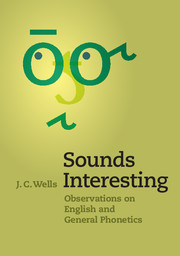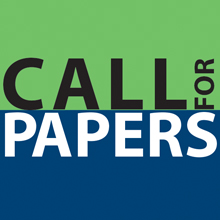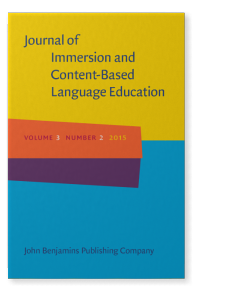
Corpora and Discourse International Conference: Call for papers

Siena University
Pontignano Conference Centre
June 30-July 2, 2016
(June 30 Conference workshop; July 1-2 Main Conference)
Main Conference
Plenary speakers:
Michael Hoey (Liverpool), Gerlinde Mautner (Vienna, WU), Michael Stubbs (Trier)
Corpus-based and corpus-assisted discourse studies (CADS) investigate the employment of corpus techniques to shed light on aspects of language used for communicative purposes or, put another way, to analyse how language is used to (attempt to) influence the beliefs and behaviour of other people.
‘CADS’ does not refer to a particular school or approach, but is an umbrella term of convenience. Indeed, the types of research it refers to are extremely eclectic and pragmatic in the techniques they adopt given that they are goal-driven, that is, the aims of the research dictate the methodology.
We welcome proposals on the corpus-assisted analysis of, for instance:
Ø discourse organisation
Ø political, institutional and media texts (including social media)
Ø social science and social policy issues
Ø cultural and cross-cultural topics
Ø discourse implications in translation studies
Ø discourse effects in literary texts
Ø notably thorny issues for corpus research like irony, metaphor and (im) politenesss
and, indeed, of any study of discourse where the three corpus linguistics virtues of Collecting, Counting and Collating are deemed to have enabled, assisted, enhanced and even perhaps complicated the data analysis. Studies of how things are done across different discourse types or of how they have developed over recent periods of time are also highly relevant.
We also welcome papers which include considerations on the general methodological and philosophical issues pertaining to CADS. These might include:
Ø what are the overall objectives of CADS research(ers); has its focus altered over the years and is it likely to alter in the future?
Ø what counts as good (in the senses of both ‘useful’ and ‘honest’) practices and are there any practices best avoided (perhaps, over-claiming, over-generalising and over-dramatising)?
Ø how do we minimise the corroboration impulse?
Ø is there a justification for deliberate ideological suasion in discourse analysis and the teaching thereof, or does this compromise the attempt at scientific data description and teacher impartiality?
Ø what counts as evidence? How much do we need to support the claims we make and evaluate those made by others?
Ø what counts as an ‘explanation’; how do we evaluate co-existing or competing explanations?
Ø corpus analysis is only one aspect of CADS. What tend to be other useful sources of information, and how are they best integrated into the research project?
Ø can CADS usefully integrate practices like, say, fieldwork, as typically employed in similar fields such as corpus-based sociolinguistics (Friginal & Hardy 2014)?
Ø what can CADS contribute to describing, proposing and ameliorating real-world social policies?
Ø what are the repercussions of CADS on theories of language (which may include theories of discourse structure and function, of sociolinguistics, of stylistics and so on)?
We invite speakers to share their own experiences of using corpus techniques to shed light on discourse and to debate these fundamental questions.
Main Conference talks will be 20 minutes with 10 minutes for questions.
Abstracts
Please send abstracts for the Main Conference to: cadssiena@gmail.com
Abstracts should be no more than 500 words including references and five keywords.
Please supply the abstract by e-mail attachment without author names with a separate document with your name and affiliation. Address e-mail subject as “CADS conference”.
Abstracts will be sent to the scientific committee for anonymous refereeing.
Workshop: Festival of Methods (June 30th)
Workshop conveners: Charlotte Taylor, Tony McEnery, Vaclav Brezina.
We have introduced a new regular feature into the Corpus & Discourse conference series in which we explore the effects of our choice of tools, methods and approaches. Ahead of each conference in the series, a task will be set which researchers are invite to tackle and then time will be set aside at the conference itself for presentation of findings and extended discussion on the kinds of analyses which were developed. We are calling this new kind of panel event the Festival of Methods because we hope it will be an engaging exploration and celebration of the range of methods we have at our disposal. This kind of activity follows on from inter-researcher and objectivity/subjectivity studies such as Marchi & Taylor (2009), Baker (2011) and Baker & Levon (2015), but also draws on the traditions of the shared task in computational linguistics where conference participants are given the chance to all work on the same data with the same research question.
For further information, please see the separate call or email FestivalofMethods@gmail.com
Important dates
Deadline for Main Conference abstract submission: January 31st 2016.
Notification of acceptance / non acceptance of submission: by March 1st 2016.
Preliminary programme published and registration opens: March 21st 2016.
The number of conference places is limited to 50. After the Conference speakers have been accepted, the admission of further places will be first come, first served.
Conference prices
Costs include: The Conference fee (including coffee breaks) and full board and lodging at the Pontignano Centre from Thursday evening meal to Sunday morning breakfast, inclusive.
Single room: 360€
Double room as single: 385€
Double room per person: 340€
The Centre also has a number of apartments which are available on request.
We practice a €40 discount for students who do not have any research funding support.
Scientific committee
Alison Duguid (Siena, Coordinator)
Costas Gabrielatos (Edge Hill)
Michael Hoey (Liverpool)
Sylvia Jaworska (Reading)
Jane Johnson (Bologna)
Anna Marchi (Bologna, Forlì)
John Morley (Siena)
Amanda Clare Murphy (Milano, UniCatt)
Alan Partington (Bologna)
Amanda Potts (Cardiff)
Charlotte Taylor (Sussex)






